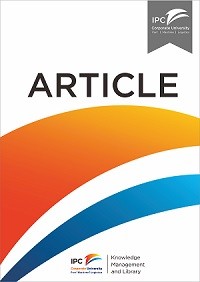Article
An integrated terminal operating system for enhancing the efficiency of seaport terminal operators
A seaport terminal is a vital link in the global supply chain which has a profound impact on port competitiveness and international trade. However, ongoing worldwide economic slumps, coupled with the proliferation of terminal operators, have created a glut for terminal-related logistics services and intensified competition among terminal operators. As a way to better utilize the existing terminal infrastructure and enhance terminal operating efficiencies, we propose an integrated terminal operating system that can reduce duplicated investments in equipment, redundant workforce, and non-valueadding processes, while standardizing terminal services including loading/unloading, discharging, and transferring cargo. To verify the usefulness of the proposed integrated terminal operating system, we develop key performance indicators of terminal operations which help to measure the comparative performances of both an integrated group and a non-integrated group of terminal operators and then formulate viable strategic options for creating ‘‘win–win’’ situations for terminal operators and their stakeholders including port administrators. In so doing, we examine the current practices of terminal operators at the Incheon Inner harbor in Korea through in-depth interviews and then identify critical success factors for integrated terminal operations based on a questionnaire survey and analytic hierarchy process. These factors include the terminal operator’s cargo attraction level, cargo turnover ratio, cargo storage capacity, and ability to comply with government rules and policies.
Ketersediaan
Informasi Detail
- Judul Seri
-
-
- No. Panggil
-
ATC LO MIN a
- Penerbit
- Korea : Macmillan Publishers Ltd.., 2017
- Deskripsi Fisik
-
23 P.
- Bahasa
-
English
- ISBN/ISSN
-
-
- Klasifikasi
-
LO
- Tipe Isi
-
-
- Tipe Media
-
-
- Tipe Pembawa
-
online resource
- Edisi
-
-
- Subjek
- Info Detail Spesifik
-
-
- Pernyataan Tanggungjawab
-
Hokey Min
Versi lain/terkait
| Judul | Edisi | Bahasa |
|---|---|---|
| Seaport Terminal Management | 04 Feb 2016 | en |
| Global supply chains : evaluating regions on an EPIC framework | en | |
| Modeling the effects of competition on seaport terminal awarding | en |
Lampiran Berkas
Komentar
Anda harus masuk sebelum memberikan komentar

 Karya Umum
Karya Umum  Filsafat
Filsafat  Agama
Agama  Ilmu-ilmu Sosial
Ilmu-ilmu Sosial  Bahasa
Bahasa  Ilmu-ilmu Murni
Ilmu-ilmu Murni  Ilmu-ilmu Terapan
Ilmu-ilmu Terapan  Kesenian, Hiburan, dan Olahraga
Kesenian, Hiburan, dan Olahraga  Kesusastraan
Kesusastraan  Geografi dan Sejarah
Geografi dan Sejarah